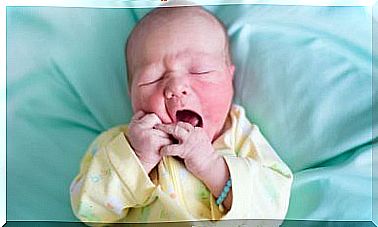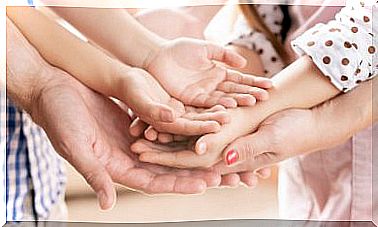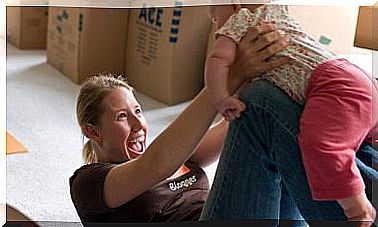Talking To The Baby Vs Talking To The Child: Differences
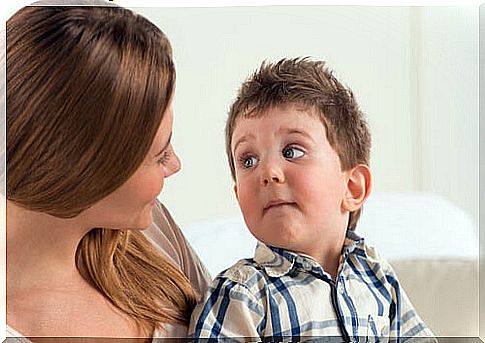
Talking to our children and being responsible for it is a mandatory task for those who want their children to experience some kind of freedom when it comes to knowing how to define themselves and to make the important decisions in their lives.
It is true that all of us carry with us “the talk” of our parents towards us: surely it has served us a lot in our lives and the same has gotten in the way. Therefore, we should all be able to assess the weight of words in our lives.
Speak for him
When we have our baby, so tiny and helpless in our arms, from the first day, we start talking to him and for him . It is one thing that moms are capable of.
“It is that he is cold”; “What he wants is to suck”; “I want to be with dad (you say for him).” In short, we are assuming a number of sensations and desires on the part of our little one, making, in this way, that we know him and we have the security that we have the resources to take care of him. We literally “put words in his mouth.”
It is a concept that in psychoanalysis is called Transitionivism. It is an operation through which the baby is summoned / considered as a small subject desiring something that his mother is capable of knowing without speaking to him.
Let’s see. When I say that my son cries because he is cold and I cover him and I cradle him and I sing him a song, I talk to him and I manage to calm him, the reason for his crying is really cold. What I mean is that what happens to our children in the beginning of their lives is what we attribute to them.
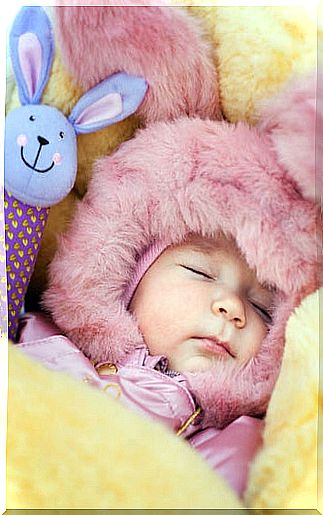
There is no truth about what happens to them that we have to guess and since we do not know, we look for the answer in a book that tells us what happens with our baby in a certain phase and what we should know.
As Carlos González says, it was never necessary to read books about childhood to know what to do with a child, and he adds: “If there is any doubt, it is better to consult other women and have each one talk about their experience, than to consult books.”
When I apply something that is written in a book to take care of my son, I am excluding him as a willing subject. Applying a technique or advice is something that my context, my life, my role as mother or father do not know.
For this reason, we should look for the way in which we take care of our children within my personal context, my experiences, my history, my ancestors.
Applying techniques or recipes read in books when taking care of our children can have serious consequences for them. But this is the subject for another article.
As he ceases to be a baby, he is acquiring more and more autonomy and is teaching his way of doing things. Some things will win our admiration and others our rejection.
The things that we reject are usually exactly what they repeat about us that we do not like or simply behaviors that are characteristic of childhood. Surely if we pay attention to them, we will know to what extent we have responsibility in the way our child acts.
When these lines come out that touch us, then that is where we usually make the mistake of naming their attitudes: “you’re a brute”; “you are very impatient”; “How rebellious.” The problem here is that we use the verb to be too much at an age when things are all open.
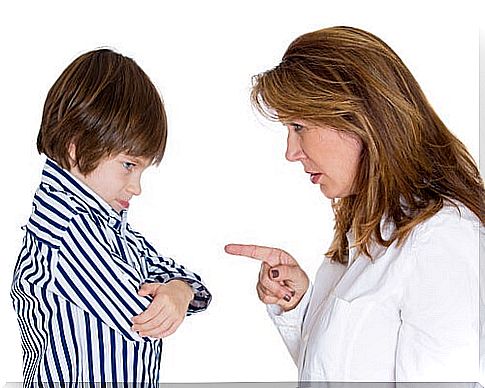
Your child is not impatient, it is that children have a hard time waiting. So a good thing is to tell them: “but son, you are such a patient child, wait for mom to come.” It is a very subtle way to avoid labels, especially those that are negative for the child.
Educating is a kind of chess game, and I usually say that the limit of education is the disposition of the parents, be it emotional or physical. It may happen that one day we are tired and we say the great foolishness to our children of which we will regret.
It is not about not making mistakes as parents, but about having a generous predisposition (in addition to love and affection is clear) with childish logic. We also have to get down to their level, otherwise we can commit too many injustices.



